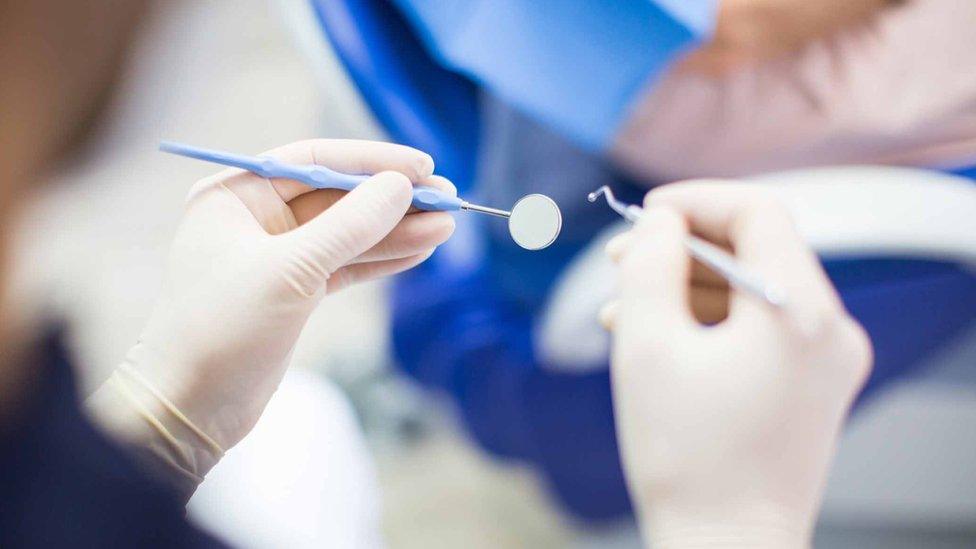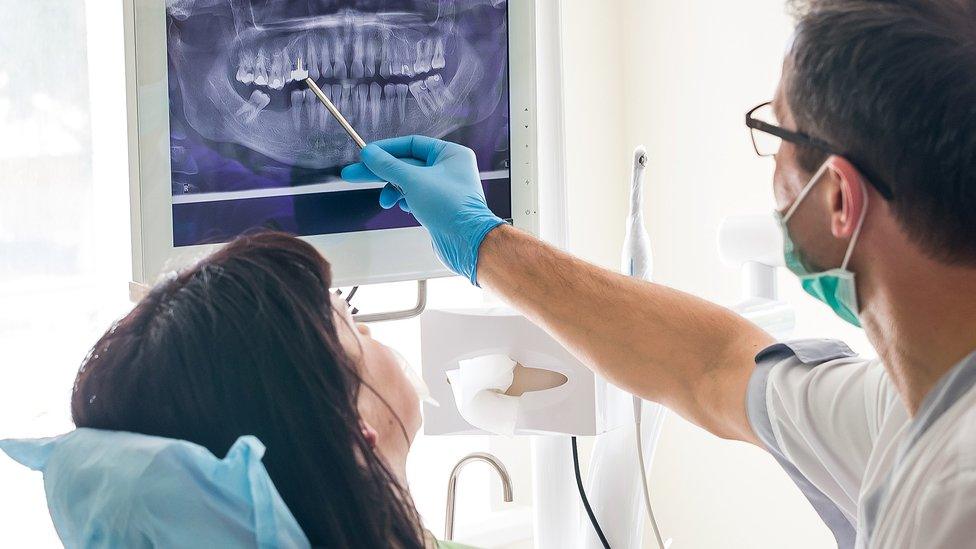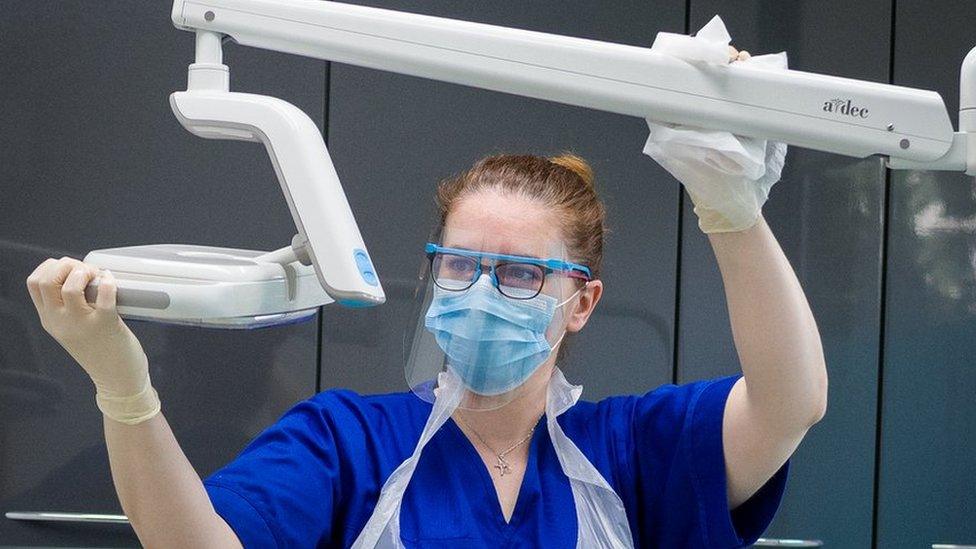Coronavirus: Dentists warn millions of treatments have been missed
- Published

Dentists have provided around 19m fewer treatments in England since March this year compared to the same period last year, figures show.
British Dental Association (BDA) analysis, seen by the BBC, shows practices operating at a fraction of their capacity during the pandemic.
It warns hundreds of practices could be forced to close within the next year without extra financial support.
The government said the NHS was working hard to restore dental care.
New coronavirus regulations mean dentists have had to significantly reduce the numbers they treat - in order to clean the surgery between patients to minimise the risk of transmitting the virus.
NHS data shows 19 million fewer treatments - which includes both appointments for emergency treatment and check-ups - were offered in England between March and October in 2020, compared to the same period in 2019.
And during September and October, dental practices were operating at just one-third of last year's level.
The BDA has warned that the reduction in the number of patients seen, paired with the closing of dentists, could have a dramatic impact on patients' oral health.
The group sent a questionnaire to all 12,000 owners of NHS and private dental practices. Of the 1,337 who responded, 740 said they would not be financially viable a year from now unless they were given extra support.
It has now written to Health Secretary Matt Hancock warning that, without government intervention, the country risks "an oral health crisis".

Tim Miller: "It felt like acid was being poured in my eye"
Tim Miller, 50, had a fractured tooth which became an abscess that went behind his eye, damaging his eyesight.
"It felt like acid was being poured in my eye. That was the start of about eight and a half months of discomfort and pain as I tried to find an NHS dentist."
"I must have tried about 10. When eventually I located one - the best advice they could come up with was can you go private?"
"I did have some incredibly dark thoughts. I got to the point where I wanted it to stop and there wasn't much I wouldn't have done to make it stop."
Tim, who is on benefits, is not signed up with an NHS dentist. He only managed to afford private treatment after several of his friends chipped in to pay the bill.
His tooth was taken out and his infection is now receding - but he is waiting to find out if he may have permanent damage to his eyesight.
Christina Chatfield, who owns the Dental Health Spa in Brighton, where Tim was treated, says she has taken on £100,000 worth of debt to keep her practice open.
But she says: "The real problem is for those who don't get care. Problems will exacerbate. Kids will have more root canals which aren't available on the NHS. That means more extractions and more orthodontics.
"And without check ups we will be missing mouth cancers - normally nationally we spot 22 cases per day."

The BDA poll found 70% of the practices who responded were operating at less than half their pre-pandemic capacity.
Sam Shah, group clinical director for East Village Dental, a group of six practices in the south of England, said: "At least two of my surgeries, both in deprived communities with high levels of need, are at risk of closing within the next 12 months if the government doesn't intervene.
"The communities have a lack of access to any other NHS dental services."
Mr Shah added: "We've seen an increase in the number of people using painkillers to manage dental pain - and that has led to an increase in the number of people presenting at A&E after inadvertently overdosing on paracetamol or ibuprofen."
A spokesman for the Department of Health and Social Care said: "The NHS is working hard to resume the routine elective services that were paused as part of the response to the unprecedented Covid-19 pandemic.
"All dentists are able to remain open to patients and those holding NHS contracts have continued to be paid in full throughout the pandemic.
"Priority access is expected to be given to urgent care and vulnerable groups, with over 600 urgent dental centres continuing to provide extra support to the dental sector."
- Published12 September 2020

- Published5 June 2020
